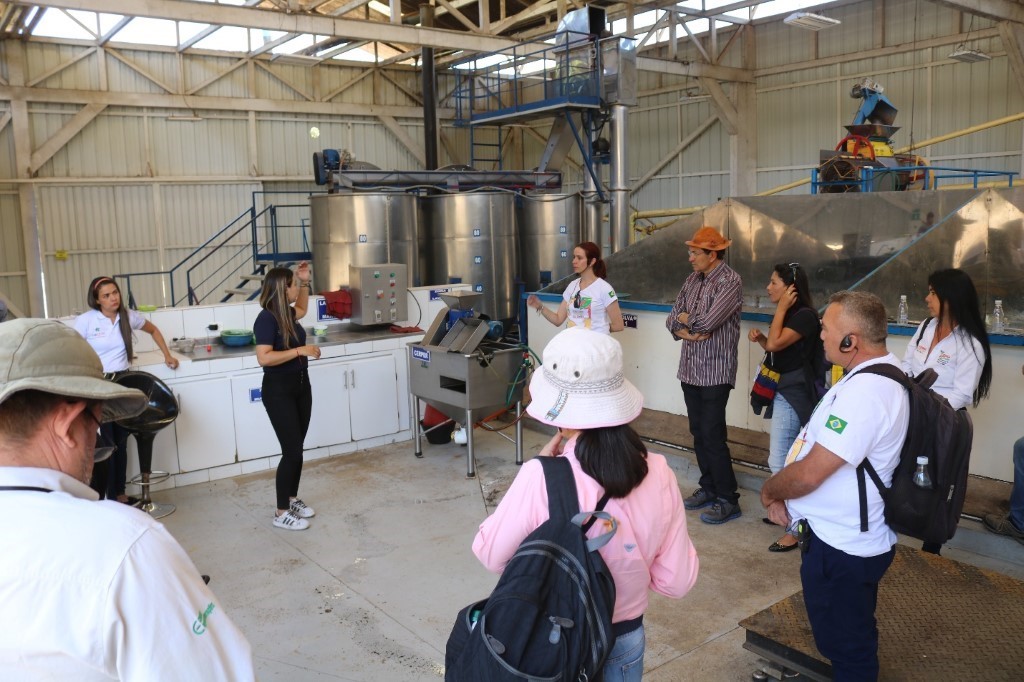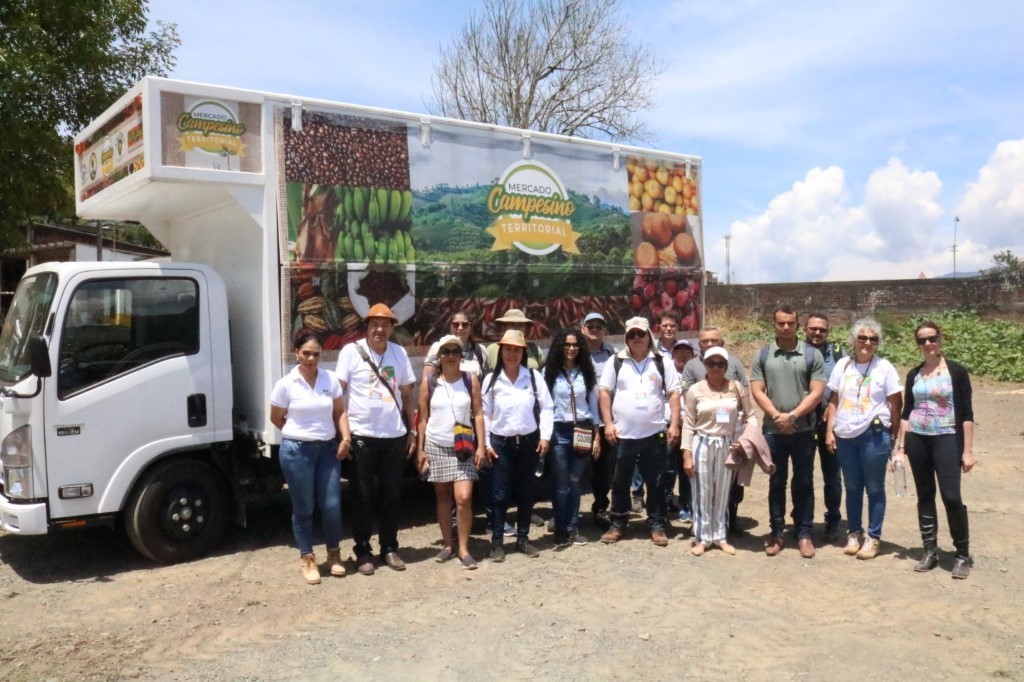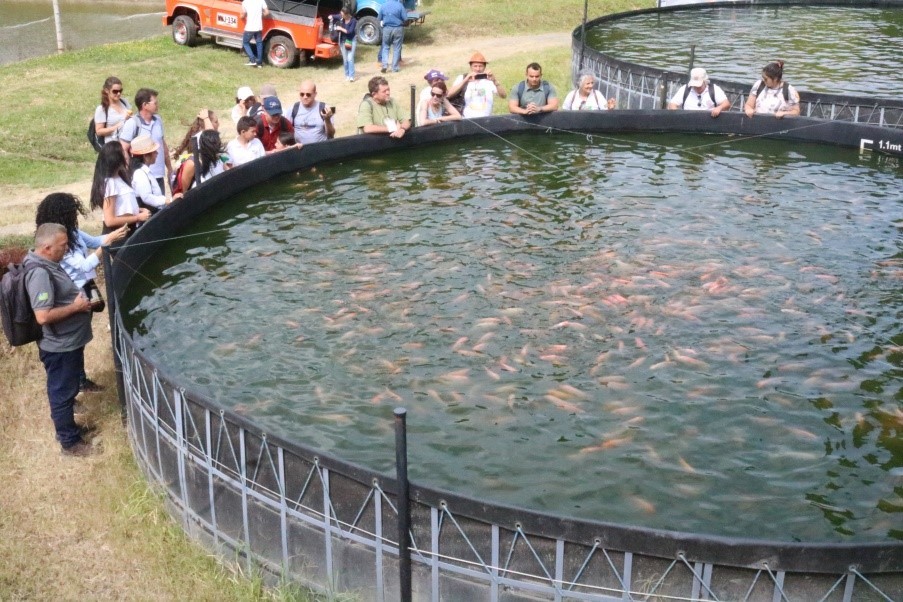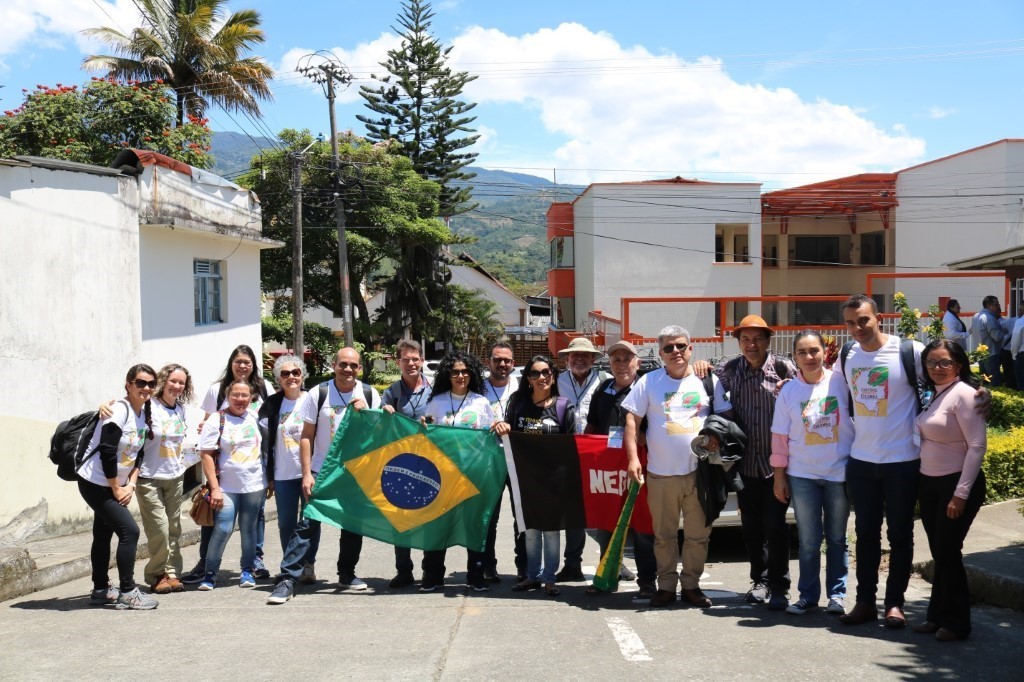 Learning Territories: Improving Practical Skills in Rural Business
Implementing learning territories and strengthening rural businesses in Brazil and Colombia
Learning Territories: Improving Practical Skills in Rural Business
Implementing learning territories and strengthening rural businesses in Brazil and Colombia

Challenges
Family farming has generated higher incomes and alleviated poverty in most remote rural areas in Latin America. Nevertheless, significant barriers remain in terms of sustainable market access, guarantees for long-term product supply and income growth for poor households.
The biggest challenges to market access facing family farming include developing a wider range of marketing channels, long-term land tenure, technical assistance, credit, capacity-building, climate impacts on production quality, product standards, inadequate pricing and imbalances in supply and demand.
Towards a Solution
The Semear International Programme has identified and showcased a range of successful experiences in promoting access to markets. Funding for this knowledge management is provided by the International Fund for Agricultural Development (IFAD), in partnership with Procasur, a global organization specialized in scaling up rural family farming practices. The ‘Learning Territories’ programme is led by Procasur and financed in South America in partnership with Semear International. It seeks to develop local capacities through associative learning for producers, families, communities and rural associations, which could help to scale up innovations.
A community or territory can be characterized as a learning territory if it has a high concentration of innovations that are relevant to development. The programme invests in promoting lessons learned by the local talents themselves in order to generate training proposals in the field and provide useful solutions for public and private partners that want to invest in rural development. The ‘Learning Territories’ programme encourages the recognition of community members in the rural technical service market as paid providers of rural technical assistance.
The Semear International Programme chose the learning territories of Belén de Umbría and Nariño, in the department of Risaralda, Colombia, to be the starting point of this exchange programme. A six-day visit to these territories took place in August 2019. The group included 6 project technical staff members, 6 governmental officials and 6 farmers from Brazil, as well as 50 local farmers from Colombia. The latter shared their knowledge management strategies and successful experiences in farming production chains and marketing. The participants analysed the possibilities for adapting and scaling up the experiences of these learning territories in their own rural development settings.
The ‘Learning Territories’ programme in Colombia has received financing from IFAD and the Ford Foundation to promote group capacity-building in associations and cooperatives of family farmers for the development of successful rural microenterprises. For example, the marketing challenges caused by a recent fall in the price of coffee required prompt production diversification and restructuring that could cope with the fluctuating demand and new quality standards required by the market. As a result, producers in Colombia successfully reorganized to undergo intensive capacity-building, create new commercial units and implement managerial and organizational techniques. The latter ultimately improved product quality, ensured stricter quality control, increased sales volumes and introduced new commercial partnerships guaranteeing business sustainability, thereby contributing to the achievement of Sustainable Development Goal (SDG) 1 on poverty and SDG 8 on decent work and economic growth.
In addition, new training strategies and a high degree of direct management required from the farmers’ organizations themselves led to innovative solutions for technical assistance programmes. The communities began to manage and sell their own knowledge, offering a wide range of peer-to-peer consultancy services for farmers, and to organize learning routes for rural businesses, thereby generating new income opportunities (SDG 1 on poverty, SDG 8 on decent work and economic growth and SDG 12 on responsible consumption and production). In Belén de Umbría, the ‘Learning Territories’ programme benefited 10 farmer associations, involving approximately 1,900 people. The Nariño learning territories benefited at least 3 farming associations and approximately 500 people. The programme has also allowed beneficiaries to reduce the generational knowledge gap by encouraging youth involvement, training young people as business managers and providers of technical assistance to other family farms, thereby ensuring the long-term sustainability of rural businesses and a more continuous presence of young people in the field (SDG 1 on poverty, SDG 4 on quality education and SDG 8 on decent work and economic growth). In the Belén de Umbría learning territory, at least 62 young people had become involved by 2015.
As a result of this visit to Colombia, development leaders in Brazil have decided to replicate this good practice in three territories in the states of Paraíba, Piauí and Bahia, in coordination with IFAD and Procasur. Farmers of honey, goats, sheep and native fruits from the caatinga, a semi-arid region, have enrolled as participants and set clear targets for enhancing their own productivity and knowledge management. This programme will enable communities to organize their knowledge management activities and strengthen their long-term capacities to increase productivity, diversify production, increase access to markets and manage and sell their own local knowledge. This is expected to contribute to increasing family farming incomes, reducing poverty, building sustainable production and consumption models, combating climate change, reducing inequalities and building strategic alliances (SDG 1 on poverty, SDG 2 on hunger, SDG 8 on decent work and economic growth, SDG 12 on responsible consumption and production and SDG 13 on climate action). The programme has been closely monitored by Semear International Programme.
Contact Information
Countries involved
Supported by
Implementing Entities
Project Status
Project Period
URL of the practice
Primary SDG
Secondary SDGs
Similar Solutions
| NAME OF SOLUTION | Countries | SDG | Project Status | |
|---|---|---|---|---|
100% Online Electronic Apostille and Legalization Sharing Colombia’s effective e-government system with other countries in the region |
Brazil, Colombia | 16 - Peace and Justice Strong Institutions | Completed | View Details |
Adaptation of 3PA to Urban and Displacement Settings Using South-South and Triangular Cooperation in World Food Programme Three-Pronged Approach capacity strengthening through cross-learning initiatives |
Brazil, Colombia | 02 - Zero Hunger | Completed | View Details |
ADAPT PLAN in Malawi |
Brazil, Colombia | 01 - No Poverty 05 - Gender Equality 11 - Sustainable Cities and Communities | Ongoing | View Details |
Addressing Racial and Ethnicity-based Discrimination and Strengthening the Protection of Rural Afro-descendants UNFPA supports data disaggregation as a tool to fight racism and ethnic discrimination |
Brazil, Colombia | 01 - No Poverty 02 - Zero Hunger 03 - Good Health and Well-being 05 - Gender Equality 06 - Clean Water and Sanitation 11 - Sustainable Cities and Communities 16 - Peace and Justice Strong Institutions | Ongoing | View Details |
ADELANTE Triangular Cooperation European Union – Latin America and the Caribbean |
Brazil, Colombia | 10 - Reduced Inequalities | Ongoing | View Details |



